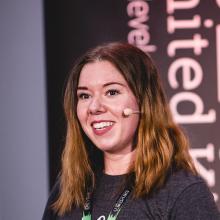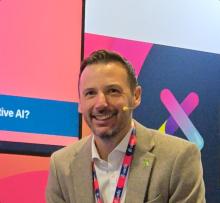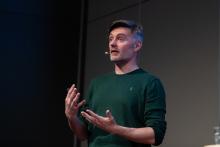Software is changing, teams are changing, the world is changing.
But the practice of architecture simply isn’t keeping up; and right at the time when we need more architecture not less.
The traditional approaches we keep trying to apply are in direct opposition to the new physics of constantly changing, sociotechnical systems. The old norms are being overturned in front of us. What used to be expensive is now cheap, what was slow is now fast, what used to be a sensible default is now a massive mistake.
This track will take the practice of architecture out of its echo chamber. The speakers will share their experiences, wisdom, and insights straight from this new world. There will be multiple perspectives and no guarantees. No-one will tell you to copy what they did, but you will learn about how they thought, what they did, how they thought about that thinking, and most importantly what they learned.
Join us to have your mind opened, and the joy returned to the practice of software architecture.
From this track
Holistic Engineering: Organic Problem Solving for Complex Evolving Systems
Wednesday Apr 9 / 10:35AM BST
Every day developers have to work with code influenced by past decisions made by non-technical departments. Every day there are defects and other obstacles caused by non-technical factors that are nonetheless reflected in your code.

Vanessa Formicola
Principal Engineer @FloHealth, Ex Thoughtworks & Microsoft, Community Builder and Social Change Advocate
The Friction Fix: Building Collaborative Relationships Between Teams
Wednesday Apr 9 / 11:45AM BST
In today's fast-paced and interconnected world, the friction between product and technology teams often feels inevitable.

Cat Morris
Staff Product Manager @Syntasso, Previously Platform and Enterprise Modernization Specialist @ThoughtWorks

Diana Montalion
Founder @Mentrix Group, Systems Architect, and Author of "Learning Systems Thinking"
Security and Architecture: To Betray One Is To Destroy Both
Wednesday Apr 9 / 01:35PM BST
Flawed architecture introduces vulnerabilities that even the best security cannot mitigate. Likewise, a well-architected system without robust security remains a ticking time bomb in the face of modern threats.

Shana Dacres-Lawrence
Senior Principal Architect @6point6 | Part of Accenture, Founder for ArchitectHer
Empowering Teams: Decentralizing Architectural Decision-Making
Wednesday Apr 9 / 02:45PM BST
In today’s rapidly evolving tech landscape, centralised architectural decision-making can become a bottleneck to delivery performance and innovation.

Peter Hunter
Head of R&D, Tech Architect @OpenGI, Led the Transformation of a Legacy Solution Into a Modern Cloud-Based SaaS Platform

Elena Stojmilova
Technical Lead @Open GI
Panel: Taking Architecture Out of the Echo Chamber
Wednesday Apr 9 / 03:55PM BST
Architecture is increasingly about ensuring that the right conversations are happening at the right time and involving the right people in the right ways.







